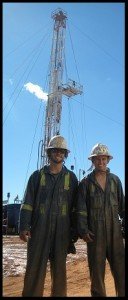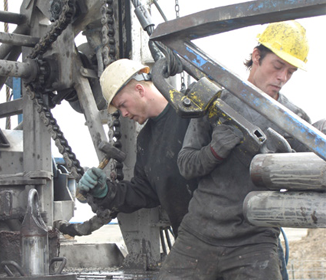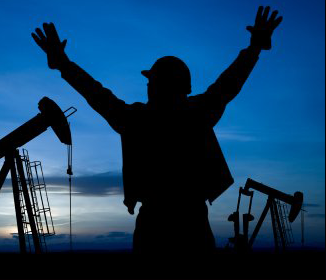When it comes to working on an oil rig, a person would have a variety of unique experiences. Obviously, the very environment of an oil rig is different from any other workplace with workers staying in offshore accommodations for weeks at a time before returning home. In addition, oil rigs are virtually like small cities with chefs, medics, engineers, and even security officers to keep everything running smoothly.
Another interesting fact about oil rig jobs is that some are entry level in which no formal education or training would be required while others are complex and demand a PhD. With so many possibilities, a work site such as this could offer work to all types of people. Specific to security of the rig, as well as workers on it, oil rig security jobs were developed and today, they remain critical.
Value of Security
Because oil rigs are offshore and sometimes in foreign countries, they have become a target for terrorist attacks. Although the most recent explosion in which an entire rig was destroyed was determined to be nothing more than a horrific accident, the incident was first analyzed as a possible attack. While there are different levels of oil rig security jobs, the people in these positions work hard to keep the rig but more importantly, the people safe from attacks of all types and from other potential risks.
Specialized Training
Depending on the oil company and the rig, security might be provided by someone hired directly or someone hired through an organization that specializes in providing highly trained individuals for a job such as this. In addition to having knowledge about terrorist risks, training would cover piracy attacks, civil unrest, activists, vandalism, separatism, and war. While some of the training might seem like overkill, oil rigs are exposed platforms in water that need the ultimate in protection, which is provided by the people working oil rig security jobs.
If security jobs are manned by people who have undergone specialized training, all workers on the rig but also the operations of drilling for precious oil would have protection from all types of risks. As maritime security experts, these people would have the ability to identify and assess risks on various levels, minimize possible impact through appropriate safety measures, provide protection or even training of other personnel in basic security issues, and if needed, deploy the right people to stop any risk against the rig and/or workers.
Individuals hired from organizations to work oil rig security jobs come from strong backgrounds with some being former Navy SEALS or members of the United States Marine Corporation Fleet Anti-Terrorist Security Team. However, along using highly trained professionals for certain types of security jobs, oil rigs also maintain full-time workers that do much the same thing although not to the same degree. Regardless, these people work tirelessly to protect the full operation.
Innovative Equipment
In addition to actual trained workers for oil rig security jobs, many of the other rig workers such as electricians, safety coordinators, technical engineers, and others play a role in keeping the rig, oil, and personnel safe by using state-of-the-art equipment that provides early detection of trouble. The benefit of having oil rigs equipped with necessary security equipment is that everything is protected not only during the day but also at night. The following are a few examples of ways in which oil rigs are protected in connection with security jobs.
- Camera Systems – Cameras are designed with special sensors, as well as highly sophisticated infrared tracking that can see problems before they actually become threats.
- Short Range Advance Detection – Another common type of equipment in connection with oil rig security jobs is a short range advance detection system. With this, certain perimeters would be established around the rig with the advance detection system having the capability of providing 180-degree laser protection.
- Long Range Advance Detection – Along with short range detection, protection is provided using the same system but for longer ranges. Not only would the appropriate personnel be made aware of incoming threats but the system would provide accurate speed and bearings.
- System Upgrades – Typically, as part of security on oil rigs, systems would be chosen that have redundancy but also the ability to be expanded. Unfortunately, threats will continue so qualified and highly trained security personnel coupled with innovative protective systems are mandatory.
Here are some related articles relate to oil field jobs. Check it out.
- Description of the Current Important of Oil Field Service Jobs
- Description of Oil Field Trucking Jobs

